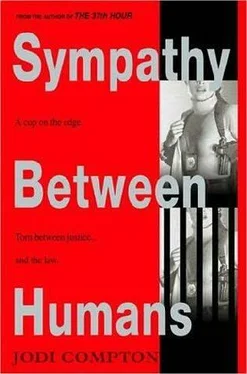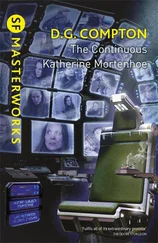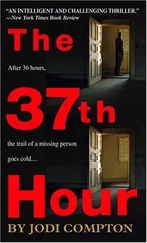Another year passed, and another. She was taking on more and more responsibility around the house. Despite the fact that he wasn’t teaching, Daddy seemed busier than ever, staying behind his study door for long hours, working on the new book. Outside, the other kids looked to her not only for meals but for homework help, reprimands, discipline.
All except for Aidan. He was a help. He watched Colm and Donal- Liam was already well into his love affair with books- when she needed to study, playing catch with them or taking them for rambles along the lake. And Aidan was her friend in a way the other boys weren’t. They shared jokes and secrets, and when Daddy went to bed early with pain in his back, sometimes they’d stay up together and watch forbidden R-rated movies on cable.
Aidan alone among her brothers could be described as tall. And when they were both 11, her brother had a growth spurt. One day, while the family was assembling around the dinner table, she’d noticed Aidan standing at the open refrigerator door, his maimed hand resting casually on the side of the appliance, looking in. It hit her suddenly how tall he was, how his arms were beginning to take on that smooth ripple of muscle that men had. He looked older than 11.
And then Marlinchen noticed her father. He was looking at Aidan, too, and his blue eyes were oddly narrow. He didn’t say anything. In fact, he was quiet all that night.
Dad had been quiet a lot of late. Marlinchen began to suspect his writing wasn’t going well, and she knew his ulcer was acting up. He spoke tersely and was short-tempered. It was around that time that the Photo Incident occurred. Marlinchen always thought of it like that, like some historical event that would be capitalized in a history textbook.
Daddy had put Marlinchen in charge of the family photos from long ago; she enjoyed making albums. She’d given Aidan a photo that was too big for an album, an eight-by-ten of their mother holding him in her lap under the magnolia tree. Aidan had never done much to decorate his half of his and Liam’s room, but he bought a frame for the picture and hung it up next to his certificate for being the fastest miler in his grade at school.
It had been up for two days when Dad, passing the older boys’ room on his way out, saw it.
“That photo doesn’t belong to you,” he’d said to Aidan, “and I don’t like seeing it in that cheap drugstore frame.”
“The photo’s mine,” Aidan had insisted. “Marlinchen gave it to me.”
Dad had simply walked over and picked up the photo and the frame.
“That’s mine,” Aidan repeated.
Dad pulled the photo free of the velvety backing. “You can have the frame,” he said. “I believe you when you say you bought it. The photo isn’t yours.”
“Yes, it is,” Aidan said, one last time, but Dad had ignored him, walked away.
The next day was the anniversary of their mother’s death. They always went to put flowers on her grave on that day, every year. It was a family tradition.
This day, when Aidan went to the garage with everyone else, Dad had laid his hand on the car door when Aidan reached for the handle, and shook his head. “You’re staying home,” he said.
“What?” Aidan’s throat had worked, as if he’d misheard.
“You know, you’ve been doing poorly in school again this year,” he’d said. “Your teacher suggested I restrict you from outings and family trips until your work improves. I think she’s right.”
Marlinchen’s eyes had been trained on her twin brother’s face. She knew how much their mother’s memory meant to him. Aidan had waited, as if Dad would relent. Then, color flooding his cheeks, he’d gone back to the house.
It wasn’t for two days that Dad realized what Aidan had done with his time alone in the house. That afternoon, Dad came out of his studio and down the hall to find Aidan laboring over his homework.
“Where is it?” he’d demanded.
“Where is what?” Aidan asked.
Aidan had taken the photo from his father’s study, and wherever he’d hidden it, Dad couldn’t find it. He’d torn Aidan’s half of the bedroom apart, he’d searched the bathroom and old hiding places around the house, but without luck. He refused to ask Aidan again where the photo was, but his black mood hung like a cloud over the house. Aidan said little, his face closed, but Marlinchen was deeply frightened.
“Can’t you just give the photo back?” Marlinchen said.
“No,” Aidan told her. “It’s not here anymore.”
“You’re provoking him.”
“He took something that was mine,” Aidan said. His voice was changing, and for a moment she heard a man’s timbre, his future voice.
“If you just give it back, things will be all right,” she had said.
Marlinchen had better grades than Aidan. She helped him with his schoolwork. But now he was looking at her like he knew something she couldn’t grasp.
“No, it won’t,” he said. “It’s not about the picture.”
When the beatings started, Marlinchen and her younger brothers dealt with it by pretending that it wasn’t happening. It wasn’t that hard. Most of the hostilities were staged away from their eyes. When they heard something through the walls, Colm would turn up the volume on the TV set. Liam would put on the headphones of his Walkman and read. Marlinchen took Donal outside, to walk by the lake. Aidan himself never spoke of it in front of them, and he disguised the bruises from both them and his teachers.
The younger boys were changing; Marlinchen saw it. They began pulling away from Aidan, as if afraid that the lightning that struck him regularly might strike one of them as well. Colm, who had once followed Aidan like a shadow, became rude and oppositional to him. At dinner he pointedly sat as far as possible from Aidan, echoing his father’s opinions and ideas. Liam grew quiet and nervous, retreating into the stories he’d begun to write.
One day, in late spring, they were all outside, enjoying the first good weather. Colm was tossing a baseball around with Donal. Marlinchen was sitting at the outside table, finishing a book she needed to write a school report on. Aidan was working on Marlinchen’s bike, the lovely metallic-orange one she’d just gotten and was still growing into. They’d taken the handlebars off and put them back on reversed, and Aidan was worried about the brake tension.
Colm made a long throw to Donal, who was standing near the deck stairs with his fielder’s glove. The throw went wild and hit the porch railing about four feet from Aidan, who put a hand up to field it a second too late. The baseball ricocheted off the wooden railing into the kitchen window. Glass shattered.
They were all statues for a moment. They knew Dad was upstairs, and he would have heard.
“Shit,” Aidan said, getting up off his knees and walking toward the window. They all clustered around it, in time to see Dad enter the kitchen, observe the broken glass on the floor and the baseball that had rolled to a stop by the refrigerator.
“Who did this?” he said, when he’d emerged onto the deck, his eyes taking them all in. There was silence for a moment, then Colm said, “Aidan did.”
“What?” Marlinchen protested. “Colm.”
“Aidan did,” he insisted, nervy defiance on his face. Aidan, like her, was staring uncomprehending at Colm, who was looking only at their father.
Dad spoke to Aidan. “Get upstairs,” he said. He didn’t ask if what Colm said was true. Marlinchen knew that he wouldn’t, not now and not upstairs.
“Colm,” she said when Aidan was gone, “what did you do that for? It wasn’t Aidan’s fault.”
“How do you know?” Colm said mulishly. “You were reading. You didn’t see.” Then he went inside the house, retrieving his baseball.
Читать дальше












